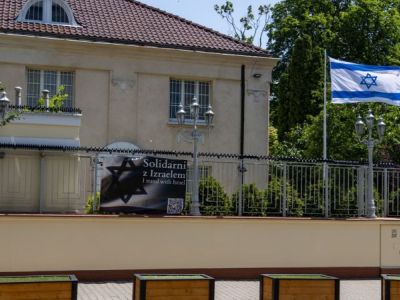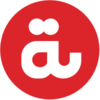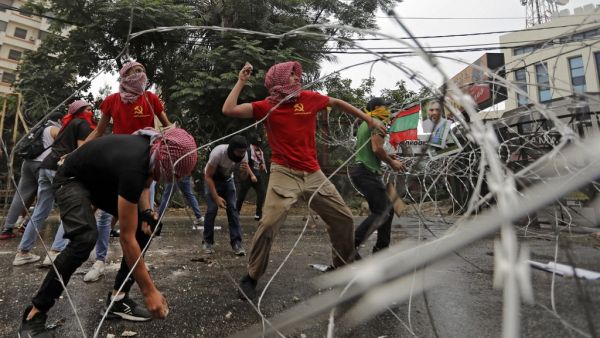Fourteen Lebanese and international organizations announced Monday their formation of a “coalition to defend freedom of expression in Lebanon,” and urged Parliament to bring the country’s draft media law in line with Lebanon’s obligations under international law.
The coalition vowed in a press release to fight the “Lebanese authorities’ attempts to stifle free speech and opinion in the country,” in light of their persistent use of defamation laws to silence critical voices.
The coalition said that Lebanese authorities had summoned at least 60 people for interrogation over their social media posts since nationwide protests against corruption and governmental mismanagement began in Oct. 17, 2019.
It added that this crackdown on peaceful speech and expression started after mass protests in 2015, but intensified after Oct. 2019.
“Lebanon’s politicians have failed to provide for citizens’ most basic needs, and their corrupt practices have squandered away billions of dollars of public funds,” the coalition said.
“Yet, instead of heeding protesters’ calls for accountability, the authorities are waging a campaign of repression against people who expose corruption and rightfully criticize the government’s significant failings.”
It said that those who had been summoned by authorities often reported being subjected to physical and psychological interrogation tactics they believed were intended to humiliate, punish, and deter them from publishing content deemed to be insulting to or critical of powerful people.
The coalition said that Lebanese lawyers had confirmed that authorities’ pressuring of people to sign pledges not to write defamatory content or to remove their content violate fundamental rights and freedoms, and are legally baseless.
“In most of the speech cases documented by members of the coalition, the prosecution and security agencies acted improperly – and sometimes illegally – to intimidate and silence people charged in these cases,” the coalition said.
Lebanon’s laws, which often include imprisonment as a punishment for peaceful criticism of officials, are out of line with the country’s international obligations to protect freedom of expression, the groups said.
The Lebanese penal code criminalizes defamation against public officials and authorizes imprisonment of up to one year in such cases. It also authorizes imprisonment up to two years for insulting the president and up to three years for insulting religious rituals. The military code of justice, meanwhile, criminalizes insulting the Lebanese flag or Army, punishable by up to three years in prison.
“At this critical juncture for the country, Lebanon needs laws that protect people exposing corruption and misconduct rather than punishing them,” the coalition said. “Parliament should urgently bring the media law in line with international law and prioritize the decriminalization of defamation and insults.”
It said that lawmakers are debating the new media law behind closed doors and without consulting civil society. That law seeks to amend the existing defamation provisions for published content, but the coalition warned that the law would further harm freedom of speech in Lebanon if their concerns were not taken into consideration.
The coalition called on Parliament to make the law decriminalize defamation and insult, and remove prison sentences for it; not grant public figures special protection from defamation or insult; prohibit all public institutions from filing defamation suits; decriminalize blasphemy and insults to religion; remove all requirements for licensing of journalists and advance authorization of publications; remove civilians and all children from the jurisdiction of the military courts; and to criminalize only statements that amount to advocacy of national, racial, or religious hatred that constitutes incitement to discrimination, hostility, or violence.
The organizations that are in the coalition are: Act for Human Rights (ALEF); Amnesty International; Alternative Media Syndicate; DARAJ Media; Helem; Human Rights Watch; Lebanese Association for Democratic Elections (LADE); Legal Agenda; Maharat Foundation; Media Association for Peace (MAPP); Megaphone; Samir Kassir Foundation; SEEDS for Legal Initiatives; Social Media Exchange (SMEX); and the Lebanese Center for Human Rights (CLDH).
This article has been adapted from its original source.










